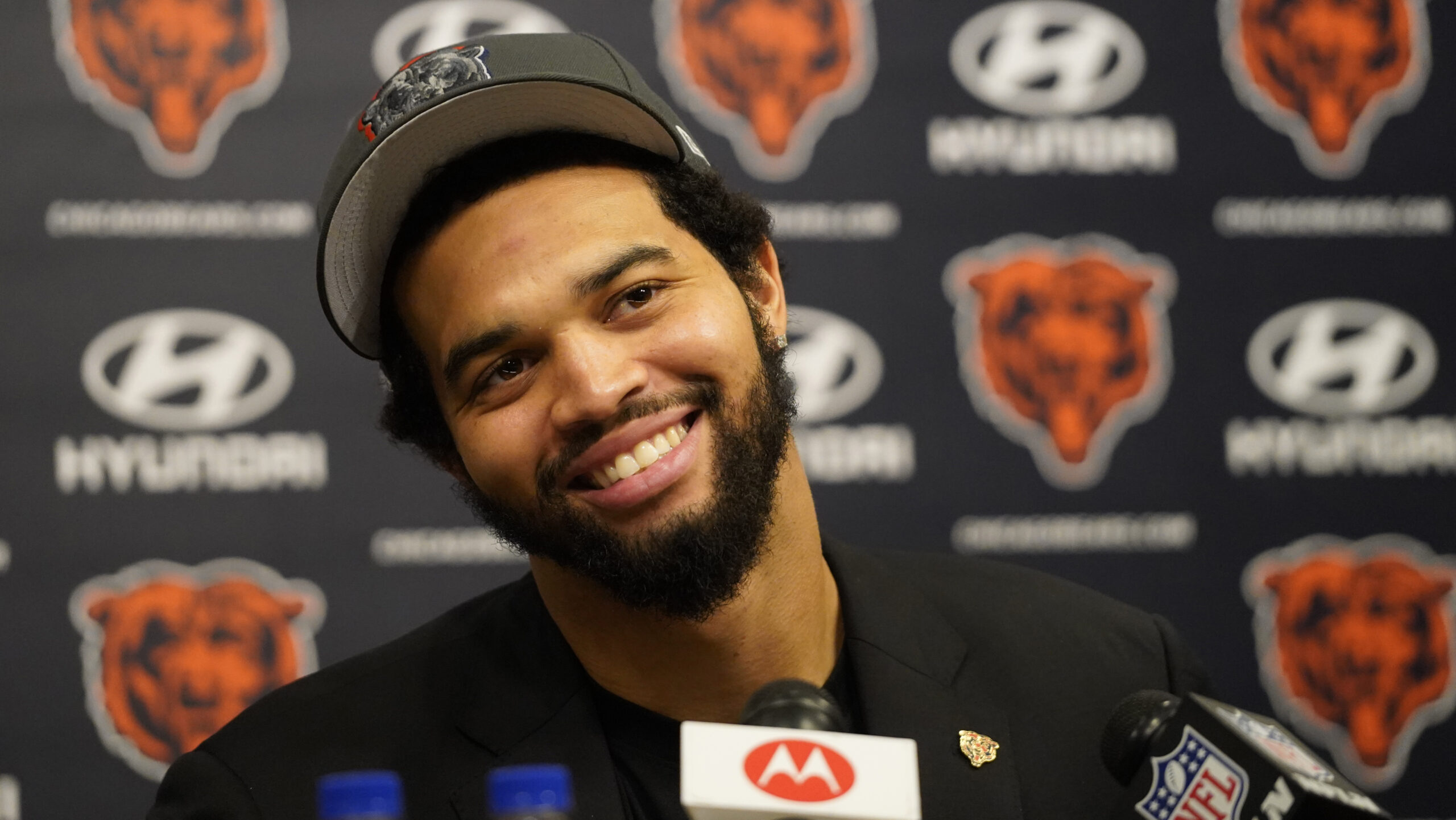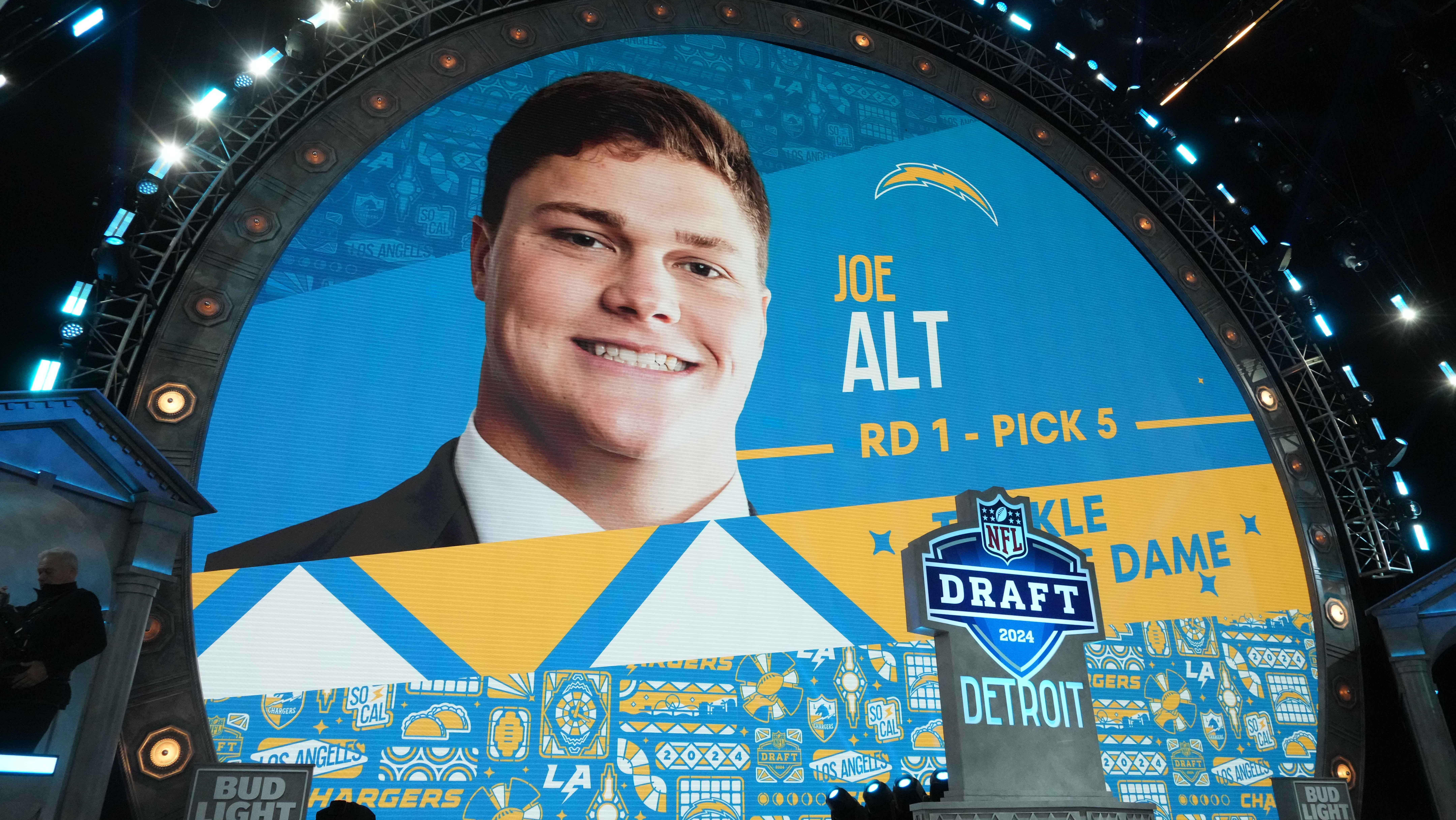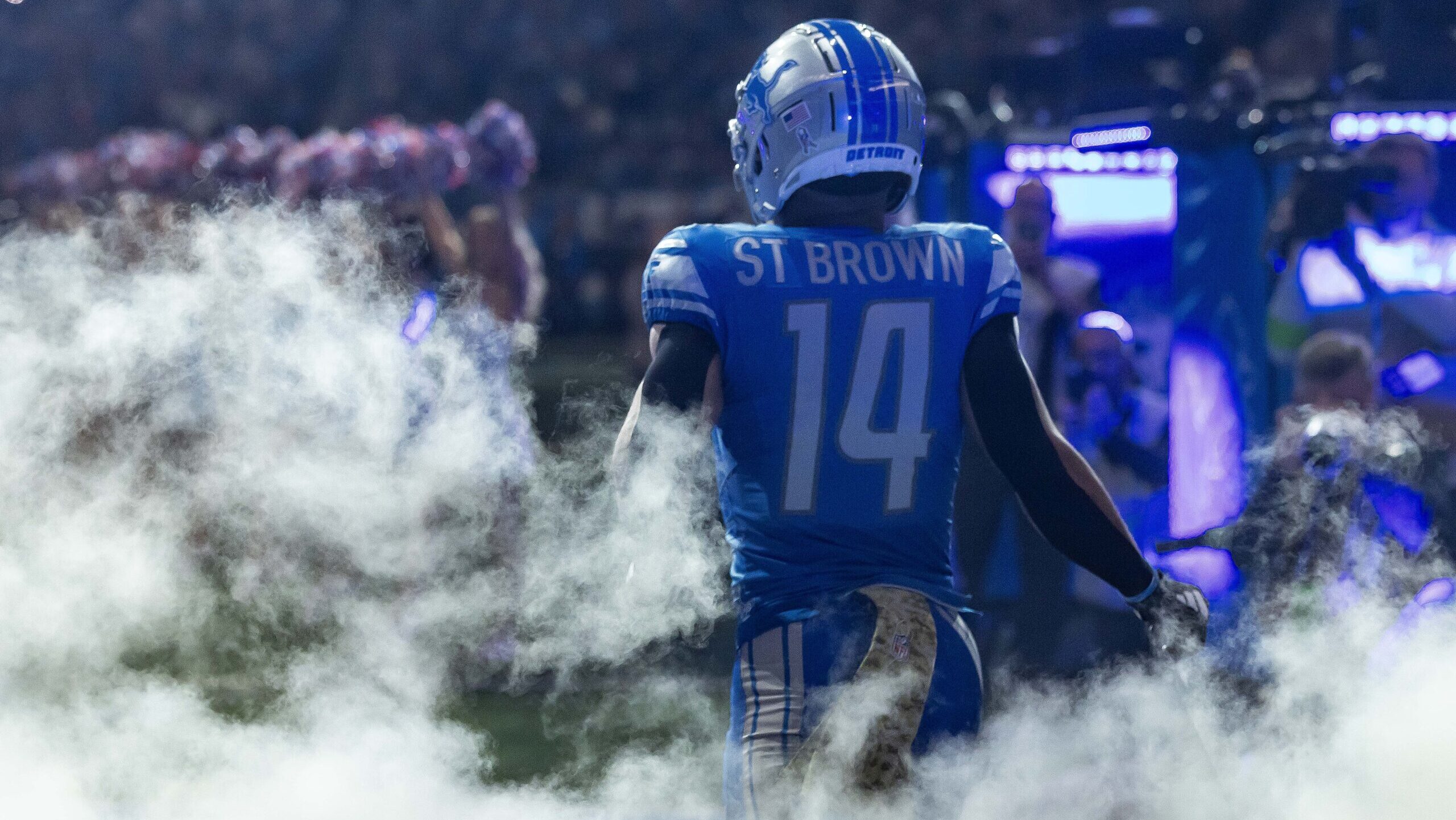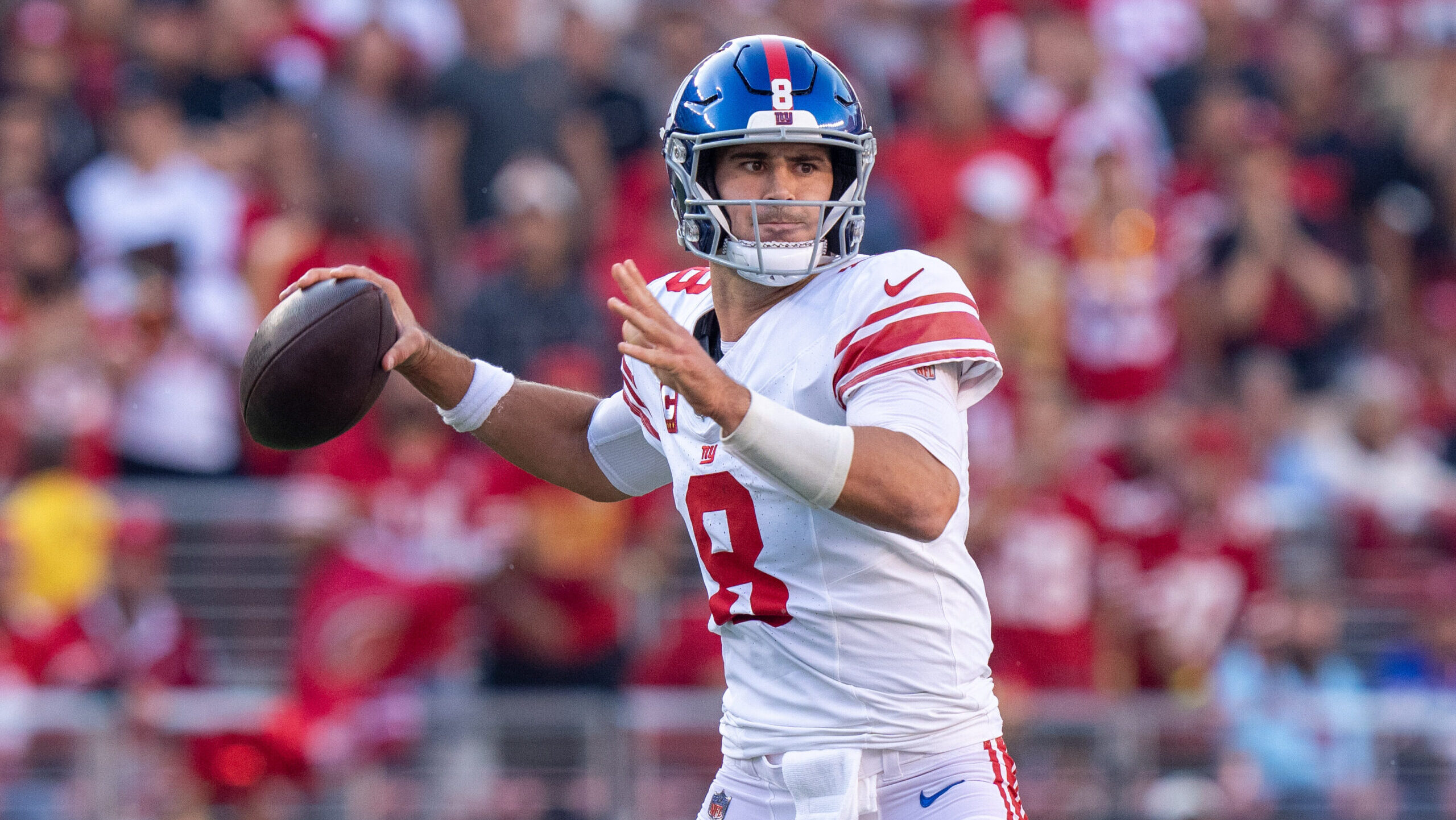Analysis
10/25/23
7 min read
First Read: Desmond Ridder Is Setting Table for Falcons' Playoff Push
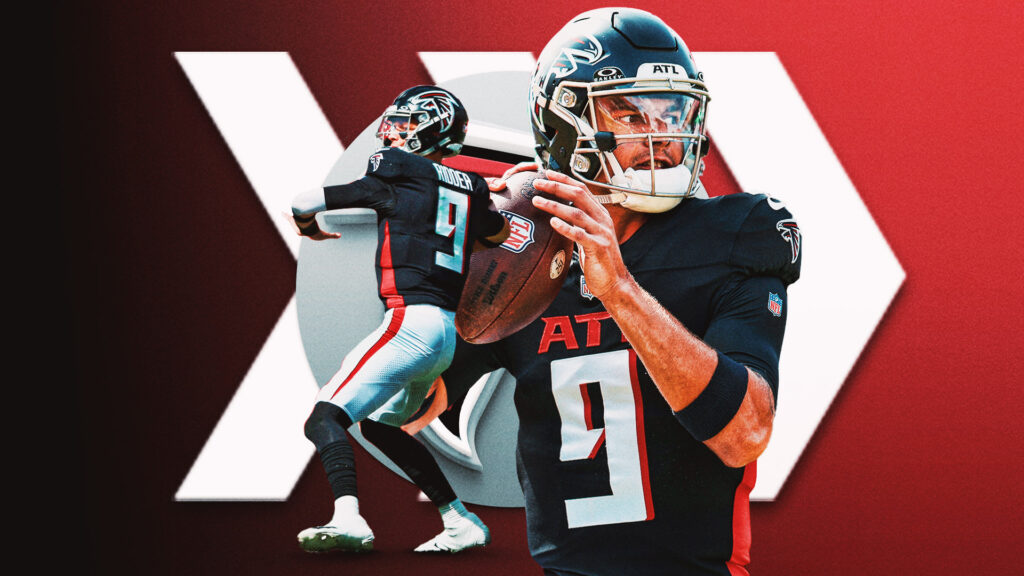
The 4-3 Atlanta Falcons sit at the top of the NFC South seven weeks into the 2023 season, and second-year QB Desmond Ridder is a big reason why.
The now-24-year-old led the University of Cincinnati to a 46-4 record in his four seasons as a collegiate starter, and his ability to lead a winning team has translated to the NFL in the past few games.
In several statistical categories, Ridder is performing similarly to his rookie season. His completion percentage, average depth of target and passing success rate are all comparable.
| Stat | 2022 | 2023 (Through Seven Games) |
| Completion Percentage | 63.5 | 65.4 |
| Average Depth of Target | 8.7 | 8.3 |
| Passing Success Rate | 44.8 | 43.5 |
But after watching tape of Ridder’s last three games against the Houston Texans, Washington Commanders and Tampa Bay Buccaneers, it is clear he’s improved in some key areas.
Coach Arthur Smith has taken the training wheels off, and the Falcons’ 2022 third-round pick is showing incremental signs he could be the team’s quarterback of the future.
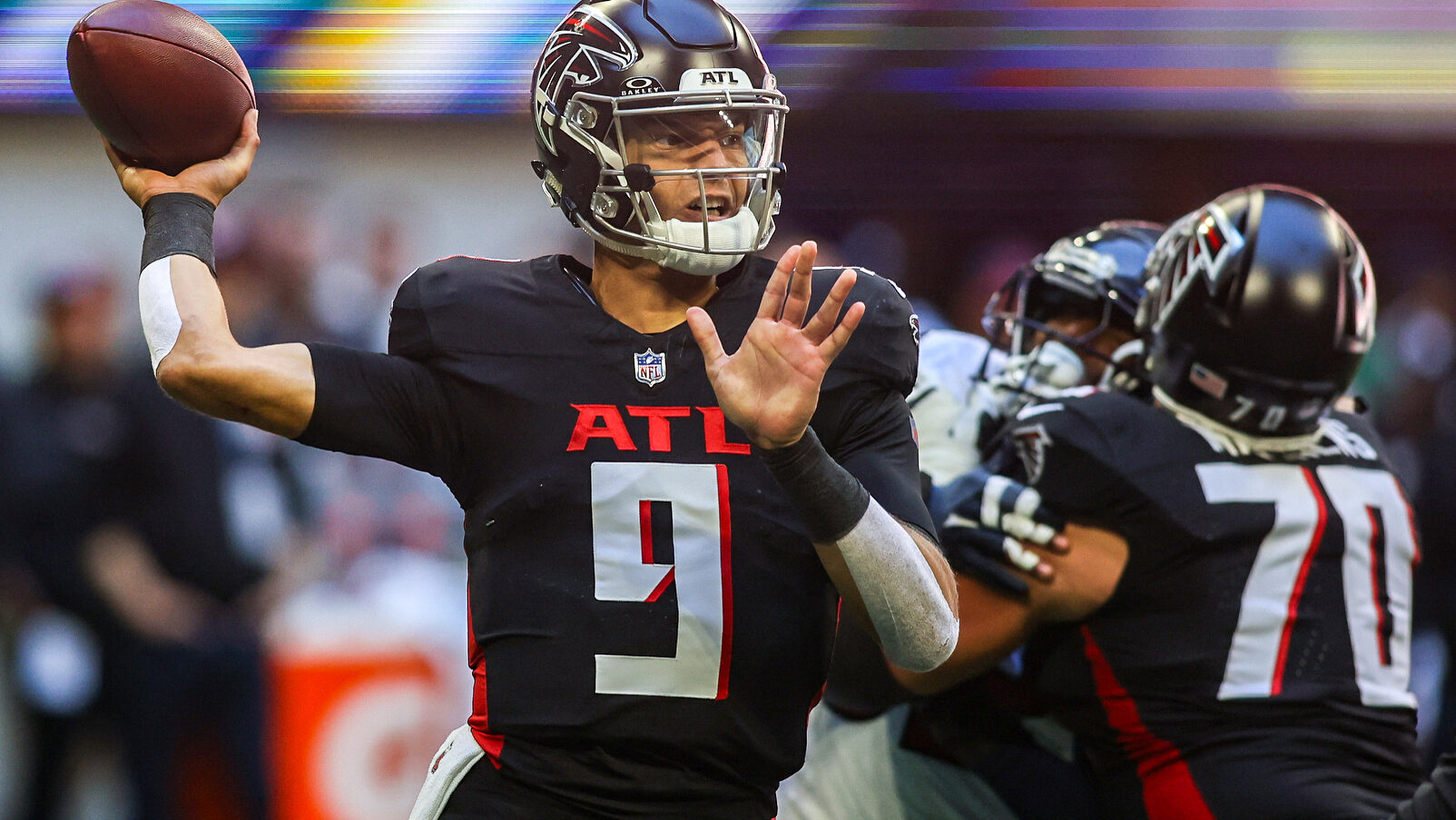
How Ridder is Growing
When watching Ridder play, his strong frame, high-end arm talent and athleticism have always stood out. He has a live arm, a quick release and more than sufficient accuracy to attack any area of the field from the pocket or on the move.
His inherent speed to move the chains with his legs when necessary is also noticeable. It confirms the 4.52-second 40-yard dash time at the 2022 combine that put him in the 99th percentile for quarterbacks. He’s picked up 10 first downs already this season with his legs.
These traits give him a strong baseline to grow into a franchise quarterback, and there is evidence he is building toward that.
Ridder’s footwork and base in the pocket have become more consistent and disciplined. Also, he’s playing with a visibly elevated confidence that was not consistently on display in 2022.
Last December, I noted that Ridder needed to improve his staging of the ball. At times, he held the ball away from his body and below the waist, causing his release to be elongated, which negatively affected his accuracy.
This season, his staging of the ball is closer to his body and is higher, with the ball’s tip at the ‘V’ of his neck. This improvement has resulted in a quicker release, leading to improved anticipation and increased accuracy. The boost to his accuracy and anticipation has led to more explosive throws into tight windows.
Aside from his improved accuracy, Ridder is growing in his ability to both read and manipulate defenses. He’s been decisive, processing quickly and reading defenses while working through and finishing his progressions to find his flare control receiver when necessary. Ridder’s average time to throw this year is substantially lower, going from 3.06 seconds in 2022 to 2.53 seconds this season.
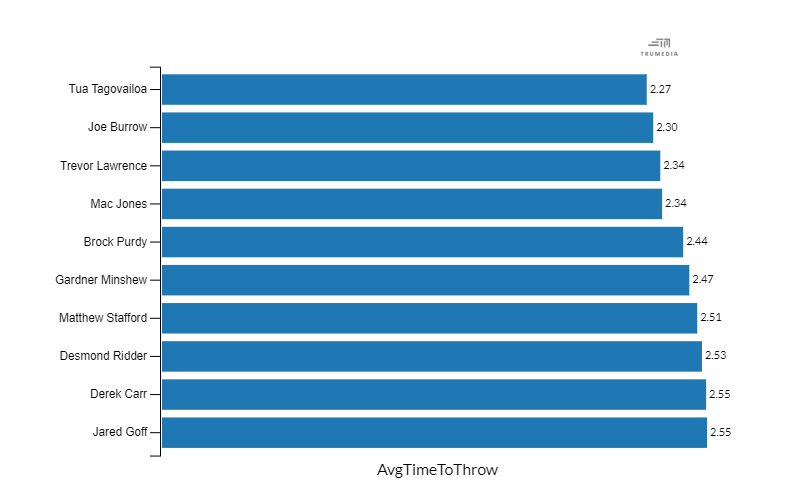
There were few reckless throws over his past three games, but on one occasion against the Texans, Ridder nearly threw an interception after staring down his intended target.
Later in the game, on a nearly identical play call, Ridder looked off the safety before hitting TE Kyle Pitts on a post. This showed an in-game coachability that should excite the Falcons’ coaching staff.
Addressing Turnover Issues
Ridder needs to take better care of the ball to gain the complete trust of the Falcons organization and become entrenched as Atlanta’s quarterback of the future.
Through seven games, he’s turned the ball over a league-leading 11 times (six interceptions and five fumbles). Although not every turnover was entirely Ridder’s fault, this is still far too many.
In Atlanta’s Week 6, 24-16 loss to the Commanders, Ridder threw three interceptions that all came on third down. One of these was while taking a serious hit, and another was partially due to a poorly run route, but turning the ball over that many times in a one-score loss is unacceptable.
His ball security came under significant scrutiny this past week when he fumbled three times in the red zone against the Buccaneers, allowing the game to be much closer than it should’ve been.
One of those fumbles came on a quarterback-center exchange, and another came on a sack that was hard to fault him on. Both of those fumbles can be understood, and although they’re unacceptable, they’re clearly distinguishable from the third and final fumble.
HUGE. @AntoineWJr11 knocks the ball loose to make it a touchback. Bucs take over.
📺: #ATLvsTB on FOX
📱: Stream on #NFLPlus https://t.co/iTs8HMaXlh pic.twitter.com/6Fe2gRjy5B— NFL (@NFL) October 22, 2023
Ridder’s lack of ball security, carelessness and apparent entitlement with the football while running on the 1-yard line allowed DB Antoine Winfield Jr. to punch the ball out. This reckless turnover was arguably unforgivable and completely Ridder’s fault. It could have cost the Falcons the game.
This matchup — against an outstanding Buccaneers defense that was leading the NFC South at the start of the game — would not have been as close if not for Ridder’s three red zone turnovers.
The most important job of a quarterback is to protect the ball and limit turnovers. Ridder must understand that and correct his mistakes moving forward.
The trust an organization has in its quarterback is primarily determined by his ability to protect the football and win on final drives in the fourth quarter. If Ridder can tighten up the ball security, there is evidence he can win in the fourth.
Late-Game Heroics
As stated in my previous article on Ridder, he has always had the poise and physical tools to inject hope into the Falcons’ fan base. Still, his ability to win “58+2” games in the NFL will come down to his command of the subtleties and nuances of quarterback play.
As Ridder has grown in those subtleties, including his mechanics, decisiveness and resourcefulness to be a playmaker when plays break down, he has shown an ability to win in late-game situations.
In two of his past three games, he engineered game-winning field goal drives to beat the Texans and Buccaneers. In those contests, he proved his maturity and clutch ability, making big-time plays late in games and in critical fourth-down situations.
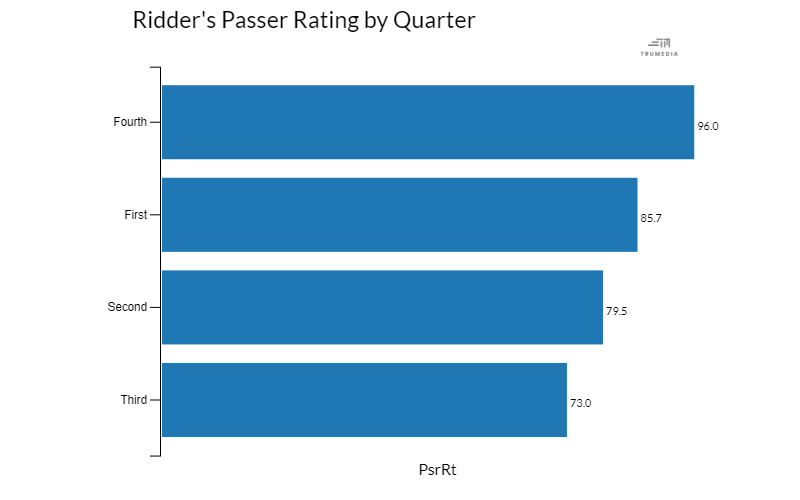
If I were sitting in the Falcons’ staff meeting this week, I would be excited about the visible development of my second-year quarterback. There will still be bumps in the road, but the only way to move forward is to continue to turn him loose. Atlanta must trust him with the ball and let him make plays when needed.
Ridder is in a good position to succeed with an offensive line that has coalesced in recent weeks and a consistent rushing attack that is eighth in the NFL in total rushing yards — alongside a defense that ranks in the top 10 in yards per play allowed against the run and pass.
Atlanta has put its second-year signal caller in a position to succeed by playing continuity football.
With the league’s easiest remaining schedule (.348 combined record of future opponents) — and three arguably winnable games upcoming against the Tennessee Titans, Minnesota Vikings and Arizona Cardinals — the Falcons have a legitimate opportunity to stay in the driver’s seat in the NFC South while Ridder continues to grow.
Marc Trestman is a former NFL, CFL and college coach. After more than a decade as an offensive coordinator and a quarterback coach in the NFL, he coached in four Grey Cups in the CFL, winning three over seven years with Montreal and Toronto before becoming head coach of the Chicago Bears. Follow him on Twitter at @CoachTrestman.


